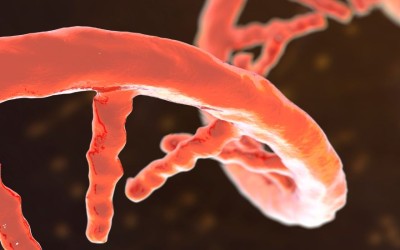
New study results change guidelines for treating mild hypertension in pregnancy
Treatment for Mild Chronic Hypertension during Pregnancy (Results from the CHAPS Trial)
Treating mild chronic hypertension with medications during pregnancy is beneficial and safe for mother and baby, according to the results of a study published in The New England Journal of Medicine. The study, known as the Chronic Hypertension and Pregnancy (CHAP) consortium, comprised about 60 clinical sites from across the United States, represented the first time that evidence-based data from the US demonstrated the benefits in treating mild forms of chronic hypertension during pregnancy.
“Following the publication of these important results, the Society for Maternal Fetal Medicine responded quickly by shifting clinical guidance to more proactively treat patients who come into their pregnancies with chronic hypertension,” noted Preeclampsia Foundation CEO Eleni Tsigas. “The Preeclampsia Foundation strongly supports this clinical guidance which significantly expands the tools at hand to prevent adverse outcomes associated with hypertension in pregnancy.” (Read the SMFM statement.)
Tsigas sat down with one of the study’s principal investigators, Dr. Alan Tita of the University of Alabama Birmingham, and Dr. Judette Louis of the Society of Maternal Fetal Medicine in a recent video interview to help patients go “Beyond the Headlines” on the study to understand what it meant for changes in patient care.
Chronic hypertension, or high blood pressure, affects about 2% of pregnant women in the United States. It increases the risk for pregnancy complications, including maternal and infant death, and increases risk for complications like preeclampsia, placental abruption, preterm birth, and small-for-gestational age newborns. Preeclampsia specifically affects nearly one-third of pregnant women with chronic hypertension. Chronic hypertension also is associated with a five- to 10-times increased risk for maternal death, heart failure, stroke, pulmonary edema and acute kidney injury.
Prior to the results of this study, clinicians and researchers were concerned that treating mild forms of chronic hypertension during pregnancy might result in worse outcomes for the mother or baby, including hypotension (blood pressure that was too low), growth restriction in the baby, or even an increased risk of premature birth.
The CHAP trial found the opposite: among women whose chronic blood pressure was treated, there was a 20% decrease in pregnancy complications – such as preeclampsia and preterm births before 35 weeks’ gestation – for women treated with medication compared to the standard group. Babies born before 35 weeks have an increased chance for short-term morbidities, long-term health complications, and intellectual and developmental disabilities. Among the active group in the study, preeclampsia decreased from 29% to 23% while preterm births decreased from 16% to 12%.
“The impact of treating chronic hypertension during pregnancy represents a major step forward for supporting people at high risk for adverse pregnancy outcomes,” said Alan T. N. Tita, M.D., Ph.D., a principal investigator of the study and the John C. Hauth Endowed Professor of Obstetrics and Gynecology at the University of Alabama at Birmingham Marnix E. Heersink School of Medicine.
Take home message: Treatment of mild hypertension is associated with better pregnancy outcomes and no risk for small for gestational age birthweight.
Editor’s note: Historically, studies have shown that research findings can take about seventeen years to be incorporated into standard clinical practices. This study and its results have been long anticipated by the OB/GYN community and it is a testament to progress in the collaborative efforts between research and clinical practice that these study results have led to an immediate change in clinical recommendations by both the ACOG and SMFM. Published at the same time as these results, it is now recommended that women entering pregnancy with mild chronic hypertension are prescribed anti-hypertensive medications during pregnancy.
Link: https://www.nejm.org/doi/full/10.1056/NEJMoa2201295
Citation: Tita AT, Szychowski JM, Boggess K, Dugoff L, Sibai B, Lawrence K, Hughes BL, Bell J, Aagaard K, Edwards RK, Gibson K, Haas DM, Plante L, Metz T, Casey B, Esplin S, Longo S, Hoffman M, Saade GR, Hoppe KK, Foroutan J, Tuuli M, Owens MY, Simhan HN, Frey H, Rosen T, Palatnik A, Baker S, August P, Reddy UM, Kinzler W, Su E, Krishna I, Nguyen N, Norton ME, Skupski D, El-Sayed YY, Ogunyemi D, Galis ZS, Harper L, Ambalavanan N, Geller NL, Oparil S, Cutter GR, Andrews WW; Chronic Hypertension and Pregnancy (CHAP) Trial Consortium. Treatment for Mild Chronic Hypertension during Pregnancy. N Engl J Med. 2022 May 12;386(19):1781-1792. doi: 10.1056/NEJMoa2201295. Epub 2022 Apr 2. PMID: 35363951.
About Research Roundup
Each quarter, our team of researchers reviews the most current studies related to hypertensive disorders of pregnancy and selects those studies they feel will be of greatest interest to our community to summarize.
Special thanks to our volunteer research team, who under the leadership of Dr. Elizabeth Sutton, make Research Roundup possible: Alisse Hauspurg, MD Felicia LeMoine, and MD Jenny Sones, PhD, DVM.
Related Articles

Comparative effectiveness of prophylactic strategies for preeclampsia: a network meta-analysis of randomized controlled trials Finding strategies for preventing preeclampsia is a top priority in...

Masked Pregnancy-Associated Hypertension as a Predictor of Adverse Outcomes Pregnant women who have risk factors for preeclampsia may be advised by their health care provider to monitor their...

Preeclampsia Prevention by Timed Birth at Term In this study, researchers looked at different ways to find out if a pregnant woman might get preeclampsia at term (>37 weeks) and when would be...

Polygenic prediction of preeclampsia and gestational hypertension All humans have near-identical DNA sequences across the estimated 6 billion-letter code that makes up the human genome. However, slig...

Noninvasive preeclampsia prediction using plasma cell-free RNA signatures. Messenger ribonucleic acid (mRNA) is a molecule that contains the instructions to tell cells how to make proteins. mRNA is m...

